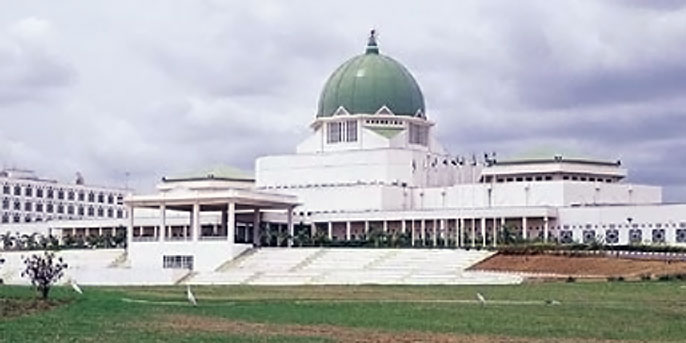The person principally in charge of the Nigerian economy, former World Bank Managing Director Dr. Ngozi Okonjo-Iweala yesterday at a public forum to discuss the challenges facing the Nigerian economy looked overwhelmed and at times confused as she battled hard to answer a few questions even as she adroitly avoided answering some others.
Dr. Okonjo-Iweala is Nigeria’s Minister of Finance and the Coordinating Minister of the Economy now expectedly referred to as the CME by a political class easily obsessed with slogans and acronyms. One of the questions Dr. Okonjo-Iweala avoided is the idea behind this piece. She could not explain the rationale behind the mind boggling and abnormal budgetary allocations to essentially guarantee a life of luxury to the ruling class.
Reading Nigeria’s budget is nothing different from reading a book containing the sharing formula for politicians and political office holders. It cost Nigerians about N1.3 trillion ($8.3 billion) to pay the salaries and allowances of political office holders. As a way of understanding this sum, N1.147 trillion ($7.4 billion) was ear marked for capital projects this year. Of this sum, just about half was truly spent which translates to the fact that, for every dollar the Nigerian government spends in developing capital infrastructure, two dollars are committed to paying the salaries of public office holders that have at best proved incompetent at bringing one of Africa’s biggest economies from the doldrums of economic failure.
This is not the sad part of the tale if you think that is sad enough. Do you know how this waste is funded? From borrowings! A total of $1.712 billion estimated at N265.36 billion is coming from countries such as India, China and France while the government is also expecting to wriggle out N794 billion ($5.1 billion) from the domestic market, bringing total borrowings for funding of fiscal 2012 at N1.059 trillion ($6.8billion). The Federal Government spending proposal for 2012 laid before the National Assembly by Nigeria’s President Goodluck Jonathan is N4.7 trillion ($30.3 billion).
Coupled with this, the government is also expecting to borrow another N600 billion ($3.9billion) from the capital market to refinance matured loans.
Apart from the cost of borrowing, note that the bulk of these borrowings are spent essentially to subsidise, in fact to cater for the entire means of life of public service holders. The Nigerian system guarantees the payment of medical expenses of public service holders. These are monies paid to Egyptian, Indian, German and other hospitals across the world. Like the Governor of the Central Bank admitted at the same event, government officials do not pay to fuel their cars. The same way they have no idea what it cost to feed a family or even pay for other rents. Their entire means of livelihood is paid for by the taxes of a people who are increasingly poorer by the day.
In 2009, Nigerian legislators received a total of N102.8 billion ($663.2 million) comprising “just” N11.8 billion ($76.1million) as salaries and a whopping N90.96 billion ($586.8 million) as allowances. The import of this gross disparity between salaries and allowances allows for just about 11% of their take home to be taxed. It would be fair to say they don’t even pay taxes to the people they so milk without regret. By comparison, let us compare the take home of probably the busiest public official in the world and Nigeria’s Senate President who is on holiday about a quarter of the year. Sourced figures indicate that the Nigeria Senate President has a total annual package amounting to N560million ($3.6million) compared to Barak Obama’s $400,000 (N62 million) as the President of the United States. Note that of Obama’s pay, $350,000 (almost 90 per cent) of that amount is taxed while just about 11 per cent of Nigeria’s senate president’s pay is taxed. The picture gets grimmer when you realise that it would take one Nigerian senator’s pay to pay the salaries of six American law makers. Compared to Nigeria lawmakers, Ghanaian parliamentarians are paupers!
The recent 2012 budget proposal provides a daily meal package of about N2.4 million/day for the president and his vice. There are also provisions to get special cars each worth N280million ($1.8million) for the president and his vice. Out of all of these, Nigerians remain poor and compared to their rulers they look absolutely inconsequential in the scheme of payments. An average UK worker earns about 22 per cent of the pay of UK parliamentarians, an average French worker earns about 27 per cent of the pay of their lawmakers, an average Nigerian worker earns 0.13 per cent of the lawmakers’ pay. In essence they earn zilch compared to their lawmakers!
This is the foundation the Nigerian economy is built on. We have seen that apart from the obvious haemorrhage on the economy by corrupt public officials, besides the pains resulting from economic restrictions and shoddy economic decisions, Nigerians are forced to borrow to maintain the lives of their rulers.
Nigeria of course cannot continue to subsidise the existence of its public office holders. Something has to give. If this is allowed to continue, Nigeria will go down and there will be no EU or US to bail her out. One debtor cannot bail out the other.
Action: Reduce the pay of all public officials by at least 70 per cent. This still leaves them as amongst the highest earners in the world. Nigeria would save about $500 million/year from its lawmakers alone if this is done.
Stop the barefaced corruption called “Security votes” allocated to Governors to do whatever they deem fit.
If all else fail, resign enmasse!


